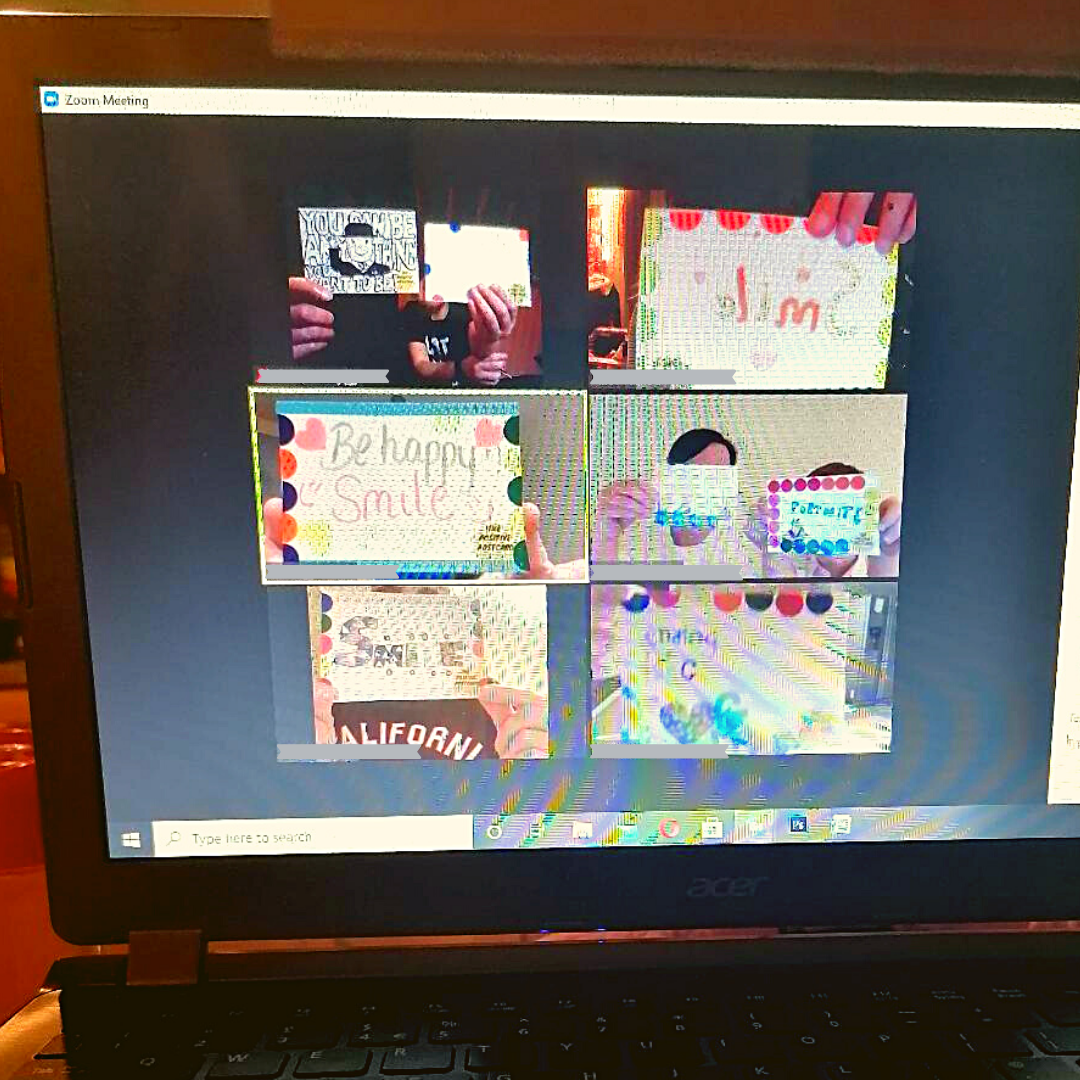Black Country Temperature Test – coping with COVID in the culture sector
During lockdown CBC commissioned creatives to work with communities on socially distanced projects across the Black Country for our Creative Connections strand of work - image courtesy of Ruth Turnbull and the Positive Postcard project.
In July 2021, CBC ran a temperature test exercise through an online survey to gain insights into how the cultural sector in the Black Country coped with the Covid-19 pandemic over the past year. The information gathered also aimed to identify how the sector is currently responding to the lifting of restrictions and plans for the future alongside views on areas for governmental actions and support.
Earthen Lamp was commissioned to analyse the information collected from the sector and draw clear and actionable insights. In total, 43 online surveys were completed.
What next?
CBC will be sharing and lobbying the findings with key decision-makers in particular around the following :
o Lobbying for sustained support for the sector and provide certainty
o Rebuild the public engagement to increase confidence leading to more attendance and improve attitudes towards the arts and culture
o Continue to connect communities across the Black Country as part of the recovery
What we learnt from the temperature test
There was a Black Country strength and resilience which came through and kept local communities connected, continuing to raise aspirations and made the most of what we already have in the Black Country. During the Pandemic organisations also stayed committed to working with local people in the Black Country enabling communities to thrive, be it through resourced opportunities, solution-based thinking or creative practice.
Uncertainty returns repeatedly as the main concern of the sector. These relates to:
uncertainty over the ability to plan for the future,
funding viability,
ongoing Covid-restrictions,
the maintenance and development of the cultural sector,
the willingness of participants to engage,
and whether government policies or initiatives will support the cultural sector.
Overall, respondents stressed the importance of clear guidance from the government going forward into the period after the pandemic.
Individuals and organisations are calling for stability in numerous forms. Calls have been made for funding to maintain creative practice and develop it post-pandemic. Additionally, respondents hope for the public to be willing to participate in cultural activities post-pandemic. With regard to the pandemic, many refered to the challenges related to long term planning faced by restrictions changing and the lack of availability of suitable insurance options.
The information provided through this consultation highlighted the key role played by arts organisations in society, and more specifically by cultural venues as important spaces of connection for communities arguing that venues should be funded and supported appropriately.
A few areas of action were highlighted for Creative Black Country and related networking and development organisations to implement. Requests were made to help rebuild the public's engagement with the arts and ways to increase public confidence and willingness to attend cultural activities and improve attitudes towards the value of arts. Respondents also asked for more community building activities. Creative Black Country and other organisation may be able to facilitate more community building as part of the pandemic recovery.
Trying to gauge the emotions expressed through the information we can summarise that the emotion is anxious, and mood is primarily cautious. There is some level of pride in having survived the last few months in spite of all the uncertainties and issues faced by this sector.

